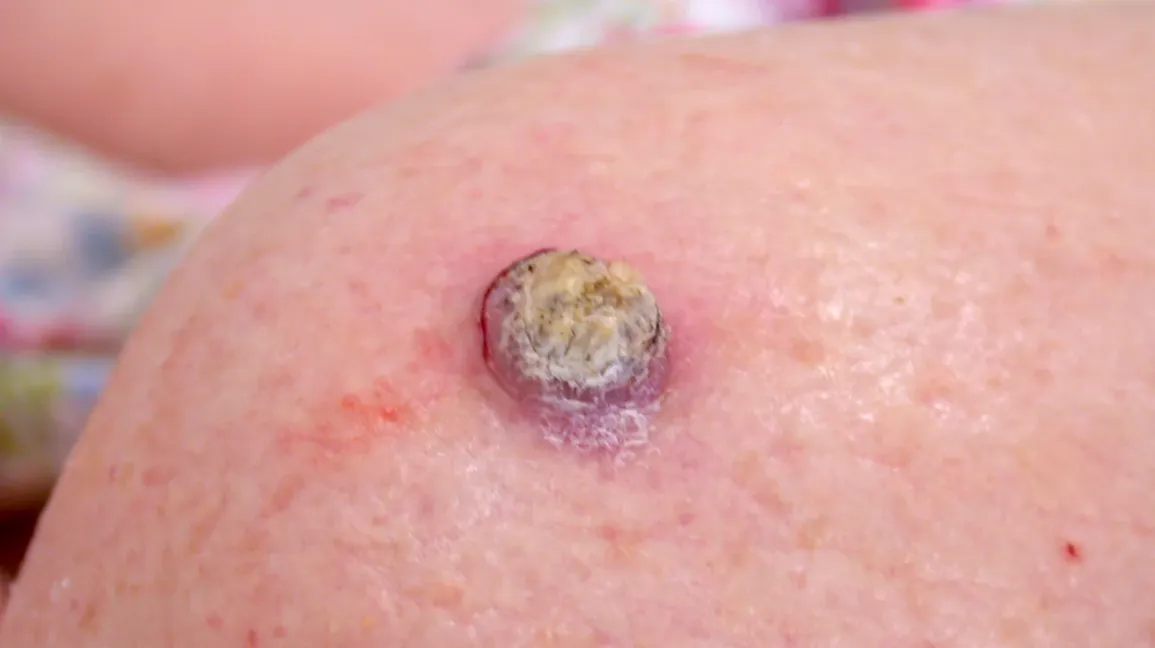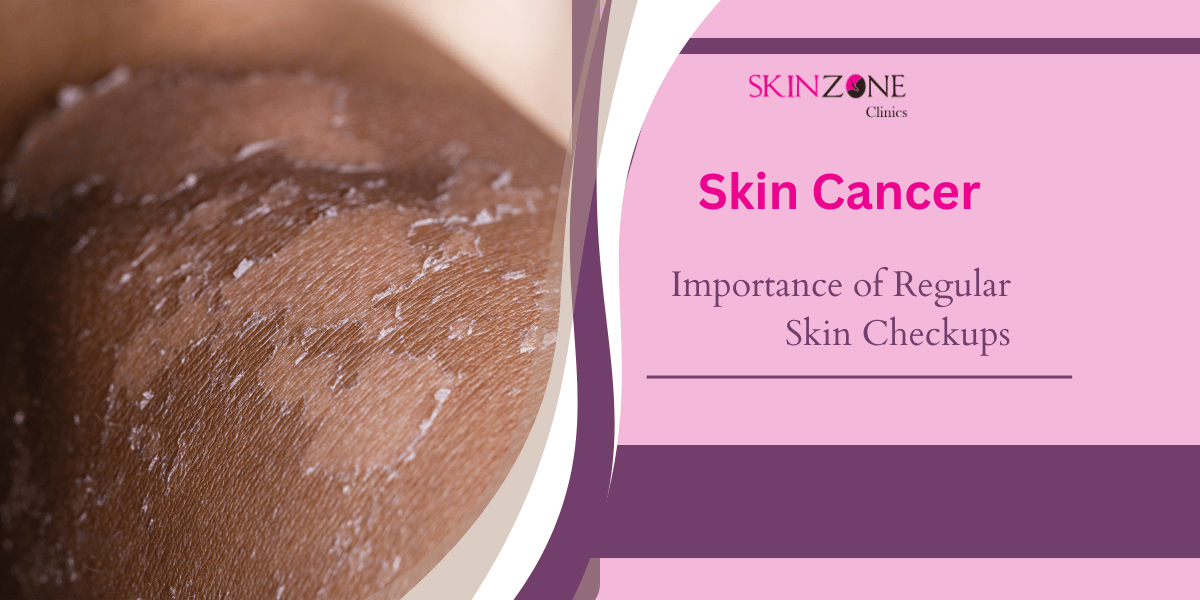Your skin protects you from heat, cold, pollution, and infections every day. It works as the first line of defense, yet many people pay attention to it only when there is a visible issue. One of the most overlooked health concerns today is skin cancer, which can often start silently and grow without causing pain. Regular skin checkups can help detect early signs before they become serious. This blog explains why routine skin evaluations are necessary, what signs to look for, and how you can protect your skin health.
Why Skin Cancer Awareness Matters

Skin cancer is one of the most common cancers across the world. Many cases occur because people ignore early symptoms or do not know what signs to watch for. When detected early, most forms of skin cancer can be treated successfully. The challenge is that skin cancer may look like a harmless patch, mole, or small lesion. If you learn to watch your skin closely and schedule regular checkups, you lower your chances of delayed diagnosis.
Key points:
- Skin cancer can happen to anyone, regardless of skin type.
- Early detection often leads to simpler and more successful treatment.
- Awareness encourages you to take control of your health.
Understanding the Common Types of Skin Cancer
There are different types of skin cancer, and each behaves differently. Knowing the basics helps you recognize unusual changes early.
- Basal Cell Carcinoma (BCC)
- Often appears as a shiny bump or a slightly raised lesion.
- Usually grows slowly.
- Common on areas exposed to the sun such as the face and neck.
- Squamous Cell Carcinoma (SCC)
- May look like a scaly patch or sore that does not heal.
- Can develop in areas exposed to sunlight or even inside the mouth in some cases.
- Melanoma
- The most serious form.
- Often begins in an existing mole or appears as a new dark spot on the skin.
- Early detection is highly important.
Signs You Should Not Ignore
You do not have to be an expert to notice unusual changes in your skin. What matters is paying attention.
Watch for:
- A mole that changes shape, size, or color.
- A spot that bleeds or forms a crust repeatedly.
- A sore that does not heal for more than two to three weeks.
- New growths that look different from your other moles.
- Red, itchy, or inflamed patches without a clear reason.
If something looks unusual and stays that way, it should be checked by a dermatologist.
What Happens During a Skin Checkup?

A skin checkup is simple and painless. The dermatologist examines your skin from head to toe. They may use a tool called a dermatoscope, which helps them view the skin more clearly. If they see any abnormal growth, they may suggest a biopsy, which involves testing a small sample of the skin. This helps confirm whether the growth is harmless or something that needs treatment.
Routine visits usually take around 15–30 minutes. You get clarity and peace of mind, which is better than waiting and worrying.
How Often Should You Get Your Skin Checked?
The frequency depends on your risk factors. People with fair skin, a history of sunburns, or a family history of skin cancer should get checked once a year or as advised by their dermatologist. If you notice frequent changes or have many moles, your checkups may be scheduled more often. Even if you have no risk factors, it is still a good idea to have a routine skin evaluation once every 12–18 months.
How to Protect Your Skin Daily
Daily care plays a major role in preventing skin damage that may lead to problems later.
Simple steps:
- Use sunscreen every day, even when indoors or during cloudy weather.
- Avoid prolonged sun exposure during peak hours (10 AM to 4 PM).
- Wear protective clothing like long sleeves, hats, and sunglasses.
- Do not rely on tanning beds.
- Keep your skin moisturized and clean.
- Perform a self-exam once a month.
When you care for your skin consistently, you support overall skin health.
The Role of Lifestyle and Nutrition

What you consume also affects your skin. Foods rich in antioxidants such as fruits, vegetables, nuts, and seeds support skin repair and health. Hydration is equally important because healthy skin needs water. Reducing smoking and alcohol intake can also improve your skin’s condition and healing ability.
Clinic Introduction: Skinzone Clinics
Skinzone Clinics in Borivali, Mumbai, is a trusted destination for dermatology, aesthetics, and trichology care. The clinic follows a results-focused approach, using clinically proven methods and personalized treatment plans. The team works to improve skin and hair health with treatments designed to look natural and maintain long-term benefits.
Areas of Specialization
Medspa Services:
HIFU, Microdermabrasion, Skin Polishing, Anti Ageing treatments, Medifacials, Hydra Facial, Skin Tightening Laser, Laser Toning
Botox & Fillers:
Dermal Fillers, Botox, Thread Lift, Facelift
Skin & Hair Treatments:
Black Patches & Facial Melanosis, Vitiligo, Facials, Nail Disorders, Acne & Scars, Hair Loss (Men & Women), Dandruff, Alopecia Areata, Chemical Peels, Skin Booster
Laser Services:
Laser Pigmentation Treatment, Permanent Hair Removal, Fractional Laser
IV Lounge:
Glutathione, Vitamin C, Multi-Complex Vitamin IV Therapies
Consultation & Contact Details
Mumbai Branch:
Office No. 403, Vini Elegance, Above Tanishq Jewellers, L.T. Road, Borivali West, Mumbai – 400092
+91 8657536730 | skinzoneclinics@gmail.com
Pune Branch:
Office No. 588, B3, 1st Floor, Ganesh Market, Bibwewadi Kondhwa Rd, Next to Spire Hospital, Pune – 411037
+91 9766540054 | skinzoneclinics@gmail.com
Frequently Asked Questions
1. Who should get regular skin checkups?
Anyone can benefit from them, especially people with sun exposure, family history of skin cancer, or multiple moles.
2. Are skin checkups painful?
No. The dermatologist simply examines your skin. If a biopsy is needed, the area is numbed to avoid discomfort.
3. Can sunscreen alone prevent skin cancer?
Sunscreen helps reduce risk, but you should also avoid direct sun exposure, wear protective clothing, and monitor your skin.
4. How do I know if a mole is dangerous?
Watch for the ABCDE rule: Asymmetry, Border change, Color change, Diameter increase, and Evolving appearance.
5. Does skin cancer only develop in sun-exposed areas?
No. It can appear anywhere, including areas not usually exposed to sunlight.
Closing Thoughts
Your skin deserves regular care and attention. Taking time for skin checkups can protect you from serious problems later. Early detection makes treatment easier and improves outcomes. If you notice something unusual or simply want to take preventive steps, schedule a consultation with a trusted dermatologist. Your health is worth the care and awareness you give it.




